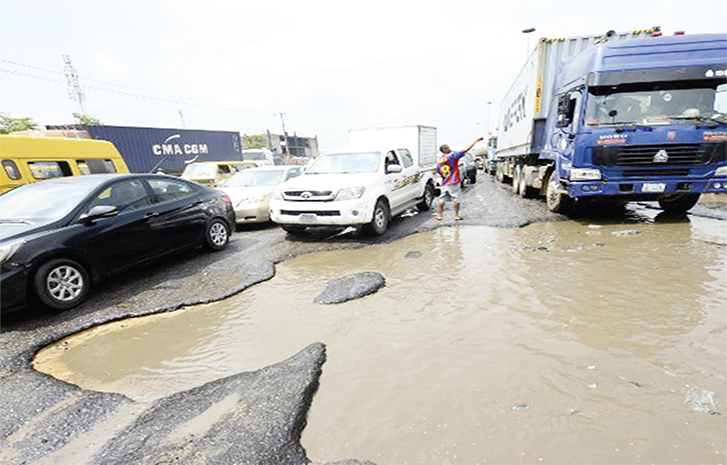Across Nigeria, the evidence of infrastructural neglect is written in potholes, crumbling bridges, and impassable highways. From Lagos to Kano, Aba to Makurdi, the country’s road network, once envisioned as a gateway to national prosperity, has become a major bottleneck for commerce, agriculture, and industry. The economic consequences are deep, persistent, and growing.
Nigeria depends on roads for more than 90 per cent of its freight and passenger movement, yet many of these roads are in poor or deplorable condition. The Nigerian Economic Summit Group (NESG) recently estimated that the country loses over ₦1 trillion annually due to poor road infrastructure. These losses come in the form of damaged goods, vehicle repairs, delayed deliveries, and reduced productivity.
Nowhere is this crisis felt more sharply than in Nigeria’s agriculture sector. Farmers in rural areas often watch helplessly as harvests rot on the farm because trucks cannot reach their villages. The inability to transport food efficiently has contributed to rising food prices and inflation, worsening an already dire cost-of-living crisis. Nigeria’s ambition to diversify its economy through agribusiness cannot materialise if farm-to-market access remains a nightmare.
In the industrial sector, the story is the same. Manufacturers face increased logistics costs, sometimes up to 40 per cent of total expenses, simply to move goods across the country. These costs are passed on to consumers, making Nigerian-made products less competitive and stifling local industries. SMEs, the backbone of the economy, are disproportionately affected. For small businesses operating on thin margins, every extra day spent navigating bad roads means lost revenue or even closure.
The human cost is also immense. Bad roads are linked to high rates of road traffic accidents, injuries, and fatalities. The poor state of highways like the East-West Road, and Abuja-Lokoja route puts lives and livelihoods at daily risk. Emergency services are delayed, and inter-state movement is hampered, all of which weaken national cohesion and investor confidence.
The government has made various commitments to infrastructure development through programmes like the Sukuk Bond-financed projects and the Presidential Infrastructure Development Fund. However, implementation remains inconsistent, marred by corruption, inflated contracts, substandard execution, and poor maintenance culture. Even newly-constructed roads often deteriorate within months due to lack of quality control and absence of drainage systems.
The solution lies not just in spending more, but in spending smart and transparently. Nigeria must prioritise roads that link economic hubs such as agricultural belts, industrial zones, ports, and markets.
Nigeria must also adopt Public-Private Partnerships (PPPs) where feasible, especially for toll roads with high traffic volumes. Nigeria must also enforce strict standards in road construction and maintenance, with severe penalties for contractors who deliver subpar work.
Establishing an independent road infrastructure monitoring agency to ensure long-term sustainability and public accountability is also a step in the right direction.
A country’s economy cannot grow faster than the speed of its roads. If Nigeria hopes to industrialise, create jobs, and attract foreign investment, it must fix its arteries of commerce. Bad roads are not just an inconvenience; they are a national emergency that is quietly strangling our economic future.
The time to act is now. Because every pothole left unrepaired is a missed opportunity for growth.





